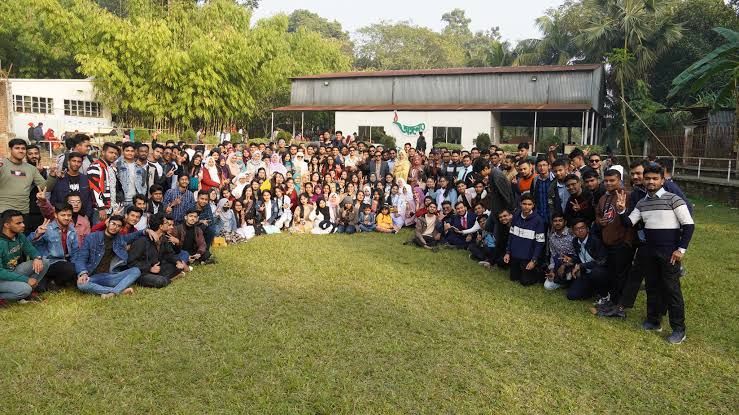
Bismillaher Rahmanir Rahim.
Assalamu Alaikum Wa Rahmatullahi Wa Barakatuhu
Dear Companions Today I want to share with you some words about the evils of killing foetuses.Welcom to this post and congratulations to all
The role of student societies in shaping a country’s future is pivotal. Students are the foundation of tomorrow’s leadership, innovation, and social progress, and student societies provide a platform where they can explore ideas, practice leadership, and engage with the world in meaningful ways. This essay explores how student societies act as catalysts for nation-building by fostering civic responsibility, leadership skills, and social engagement, ultimately contributing to the country’s long-term development.
- Cultivating Leadership Skills
Student societies offer unique opportunities for young people to develop leadership qualities that are crucial for national progress. Within these groups, students often take on responsibilities such as organizing events, managing budgets, and coordinating activities. These experiences not only enhance their leadership abilities but also expose them to decision-making processes that they will encounter in the future. By leading their peers, students learn essential skills like collaboration, problem-solving, and conflict resolution, all of which are fundamental in the governance and administration of a country.
Through managing various activities and initiatives, student leaders cultivate an understanding of accountability, which is essential in any leadership role. As these students step into professional and political spheres, their ability to lead with integrity and responsibility will have a lasting impact on the governance structures of the nation. In fact, many prominent leaders in history began their journeys in student societies, proving the undeniable link between student leadership and future political and social leadership.
- Encouraging Civic Engagement and Social Responsibility
Student societies often focus on social issues such as environmental sustainability, human rights, and social justice. This nurtures a sense of civic duty among students. By actively participating in discussions and projects related to these topics, students become aware of the pressing issues facing their country and the world. Such involvement prepares them to be responsible citizens who contribute positively to their communities.
Involvement in these societies allows students to advocate for change, promoting progressive ideas and working towards solving problems at a grassroots level. Whether through environmental clubs, debate societies, or volunteer organizations, these groups foster a culture of civic engagement that extends beyond the campus. For instance, a student environmental society might organize campaigns to reduce plastic waste, raising awareness of environmental degradation and influencing public policy in the long run.
This process of civic engagement not only helps students understand the importance of participating in democratic processes but also encourages them to hold their governments accountable. As future voters, leaders, and activists, their engagement in societal issues today lays the groundwork for a more active and informed citizenry in the future.
- Facilitating Innovation and Problem-Solving
Student societies often serve as incubators for innovative thinking. In an environment that encourages collaboration and free exchange of ideas, students are empowered to think creatively and come up with solutions to some of the country’s biggest challenges. Societies focused on technology, entrepreneurship, and science often work on cutting-edge projects that push the boundaries of what is possible.
For example, student-led tech societies frequently organize hackathons or design challenges where participants are encouraged to solve real-world problems using technology. These experiences foster a spirit of innovation that carries over into the students’ future careers, benefiting industries like healthcare, education, and infrastructure development. Some of the most successful startups and technological innovations have emerged from university campuses, highlighting the role of students in shaping the economic future of their nations.

source
By tackling social and technological challenges in a student society setting, students practice critical thinking and problem-solving, both of which are key to addressing national issues such as unemployment, poverty, and environmental crises. The solutions that students develop today could very well form the basis of tomorrow’s policies, businesses, and technologies.
- Building National Unity
Student societies, particularly in diverse countries, serve as microcosms of the larger society, bringing together individuals from different backgrounds, cultures, and ideologies. Through these interactions, students learn to appreciate diversity and work together towards common goals. This exposure to different perspectives fosters tolerance, inclusivity, and a sense of shared purpose, which are essential in building a unified and cohesive nation.
As students work side by side with individuals who may have different cultural, ethnic, or political backgrounds, they begin to break down prejudices and stereotypes. This sense of solidarity among students can translate into national unity as they take on future roles in government, business, and civil society. Student societies provide a space where future leaders can learn the importance of compromise, dialogue, and mutual respect, all of which are critical in maintaining peace and stability in a country.
- Developing a Global Perspective
In an increasingly globalized world, students must be able to navigate not only local but also global challenges. Many student societies focus on international issues, allowing students to engage with problems like climate change, global poverty, and international relations. This global awareness is crucial for the future leaders of any country, as they will be required to collaborate with international partners, participate in global governance structures, and address transnational challenges.
Student societies often collaborate with international organizations, host foreign dignitaries, or participate in exchange programs, all of which expose students to global perspectives. This not only broadens their horizons but also prepares them to engage with the world in a meaningful way. A student who has participated in an international relations society, for instance, will have a better understanding of diplomacy, trade, and foreign policy, all of which are essential components of national development in a globalized economy.
source
Student societies play a critical role in shaping the future of a country by fostering leadership, civic engagement, innovation, national unity, and a global perspective. As students discuss the future of tomorrow, they are not merely debating abstract ideas—they are preparing to take on the responsibilities of nation-building. The skills, values, and experiences gained through participation in student societies equip them to lead their countries towards a prosperous, inclusive, and sustainable future.
In the hands of today’s students lies the promise of tomorrow’s progress. Through student societies, young people not only engage with the present but also shape the future, laying the foundations for a stronger, more cohesive, and forward-thinking nation.



